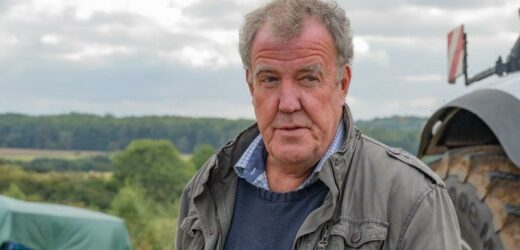London: Jeremy Clarkson, the British television presenter whose documentary about farming during the pandemic became a worldwide smash-hit, has been ordered to shut his farm’s cafe and restaurant after a council claimed his business had breached planning laws.
The former Top Gear presenter is appealing against an enforcement notice for his 400 hectare property in the Cotswolds village of Chadlington, near Chipping Norton after West Oxfordshire District Council took action in August. Clarkson named the farm “Diddly Squat” after the amount of income it had generated.
Jeremy Clarkson has been ordered to shut his farm’s cafe and restaurant after a council claimed his business breached planning laws.Credit:Amazon Prime
In its notice over the “material change of use”, the council said the parking, toilets, and traffic were “visually intrusive and harmful to the rural character, scenic beauty and tranquillity” of the Cotswold AONB (area of outstanding natural beauty).
“The unlawful use of Diddly Squat Farm by reason of its nature, scale and siting is unsustainable and incompatible with its open countryside location,” the notice said.
Clarkson was told to shut the restaurant, or anything selling food to be consumed on the farm, and also ordered to remove dining tables, chairs, garden umbrellas and picnic tables.
The 62-year-old presenter became an unlikely champion of British farming after a long career spent dismissing issues such as climate change, which poses a major threat to the UK’s agricultural sector.
His Amazon Prime series, Clarkson’s Farm, is based on the premise that farming wasn’t hard, and he had decided to take on the running of the 400 ha farm he bought in 2008. It was previously run by a villager until his retirement in 2019. The farm itself, which grows a mixture of wheat, canola, barley with sheep, made just £140 ($243) in 2020.
He opened Diddly Squat Farm’s restaurant in July to rave reviews, with customers braving three-hour lines to sample its food. Clarkson was jubilant when he said he found a “delightful little loophole” allowing him to open despite twice being denied planning permission, albeit on a different site to the original one.
Clarkson’s “lambing shed” in a nearby field on the farm now seats seven tables of four outside and charges £49 (AU $85) a head for a menu of beef sharing dishes, excluding service and drinks.
The eight-part TV series, which first aired in July last year, is heavily focused on Clarkson’s frustration with local planning laws, and he has since been involved in a long-running dispute with the council.
Jeremy Clarkson, as his farmhand Kaleb Cooper, who in the TV series delights in reminding Clarkson of his blunders.Credit:Amazon Prime
The popularity of the series led to huge queues on several occasions for the Diddly Squat Farm Shop, with neighbours growing concerned about traffic jams and speeding cars. Villagers complained at meeting last year the farm shop had become “a theme park”.
Officials have ordered the farm to undertake a catalogue of measures within six weeks of it serving the notice on August 12. The orders include removing all mobile toilets, all tables that would be used by diners, and “landscaping materials”.
The council said the farm must also stop selling products other than those made on the farm, those made within a 25.7 km radius of it, or others that the council has allowed.
In a statement, the authority said: “Council officers have worked with the owner and planning agents of the business, over many months, to investigate breaches in planning control, advising on how the business can be operated in a lawful way and trying to reach a solution.
“The business continues to operate outside the planning permissions granted and advice has been ignored. The activity has also had a significant impact on the local community.”
An agent working on the farm’s behalf denied it breached planning laws and said some of the requirements were “excessive”. They also said a map served by the council was wrong and that the notice “should be quashed in its entirety as a result”.
The agent told the BBC it would have a “serious and detrimental impact on the business and livelihoods of those employed at the site” and that six months would be a “more reasonable timeframe”.
Get a note directly from our foreign correspondents on what’s making headlines around the world. Sign up for the weekly What in the World newsletter here.
Most Viewed in World
From our partners
Source: Read Full Article




